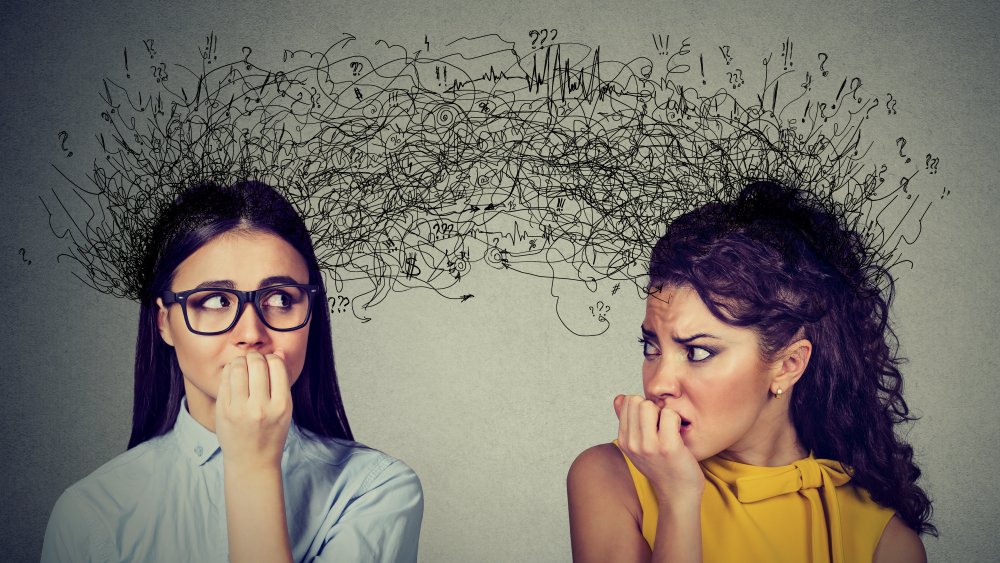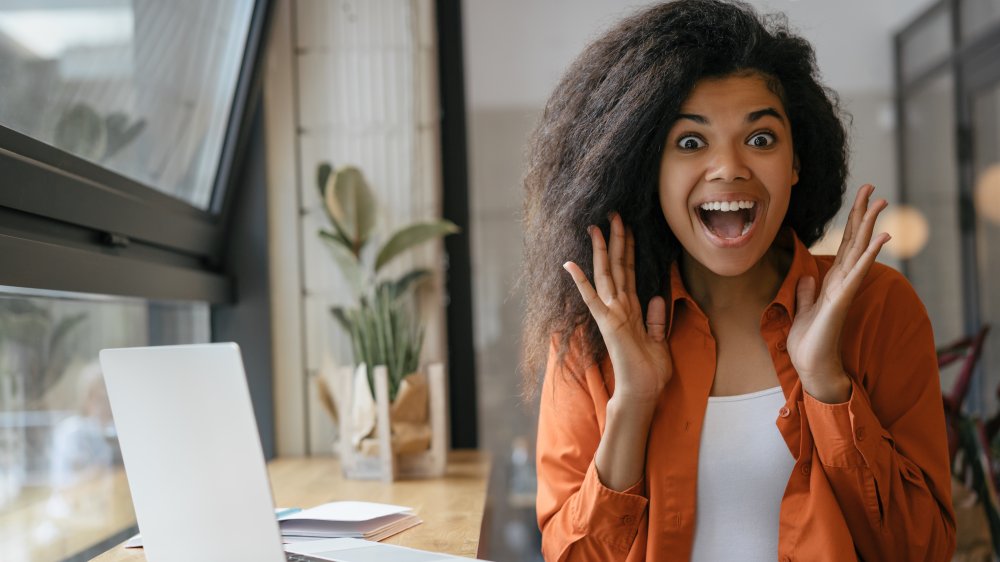The Surprising Way The Pandemic Is Affecting Our Social Skills
If it seems like your social skills have taken a nosedive, you're not imagining things. It's now been more than six months since the White House declared the COVID-19 outbreak a national emergency — and for many of us, it's been a major adjustment as schools, stores, restaurants, and work gradually reopen. The good news? The resulting awkwardness of being thrust back into social settings is actually normal.
Turns out, social skills get rusty if they're not used on a regular basis, and this can lead to feelings of anxiety, impulsiveness, and intolerance of others. "The first thing to understand is that there are biological reasons for this," says Stephanie Cacioppo, Ph.D., director of the Brain Dynamics Laboratory at the University of Chicago (via The New York Times). "It's not a pathology or mental disorder." Being deprived of a full range of human interaction over time inevitably takes a toll that forces your brain into survival mode. And when you're primed for fight or flight as a result of isolation, you may become overly sensitive to others and react to them accordingly.
Here's how to handle social awkwardness
If you spent part of your quarantine catching up on Orange Is the New Black, you may have unwittingly gleaned some useful tips for our awkward times. "I don't want to make an equivalence between prisoners in solitary confinement and what all of us are going through now, but there are definite similarities," says Craig Haney, psychology professor at the University of California, Santa Cruz (via The New York Times). "The guys who survive best are the ones who write letters and maintain visitation and who maintain communication with other people, even if it's just through the walls of a cell block," he says, adding, "It's the ones who withdraw deeply in and eschew contact with others who do the worst."
Engaging in as many real-time virtual activities as you can will help you keep up your spirits and social skills if you are still sheltering in place. NPR recommends joining an online class or signing up for a virtual volunteering opportunity such as Be My Eyes, an app that connects volunteers with those who are blind or who have low vision. Tempering your expectations when you encounter others also helps, as not everyone will re-emerge the same after having their lives upended by the pandemic, including yourself.
"I feel myself getting more dispirited and reluctant to reach out to other people. If you are totally ok, great for you, but maybe don't judge," commented one Times reader. "If you are totally ok, use your reserves to reach out to people who may not be."

